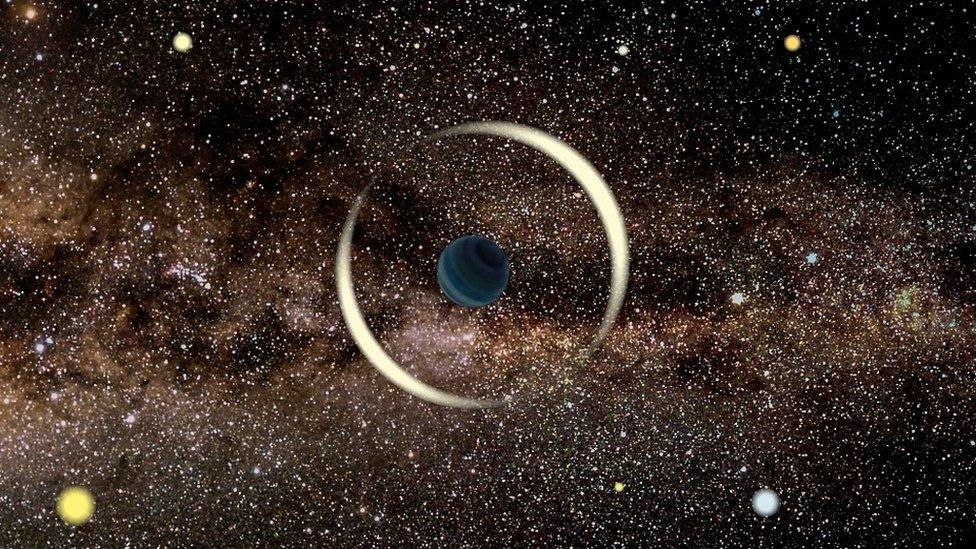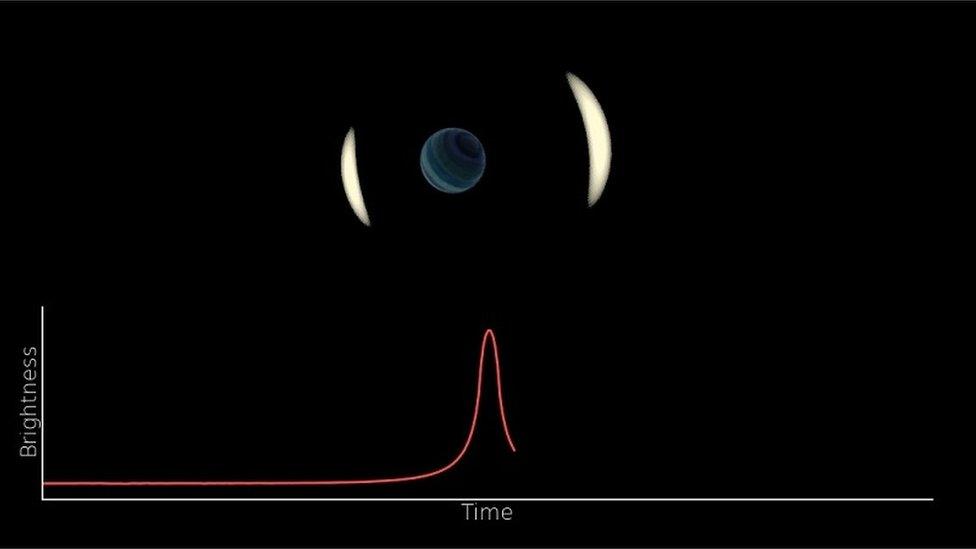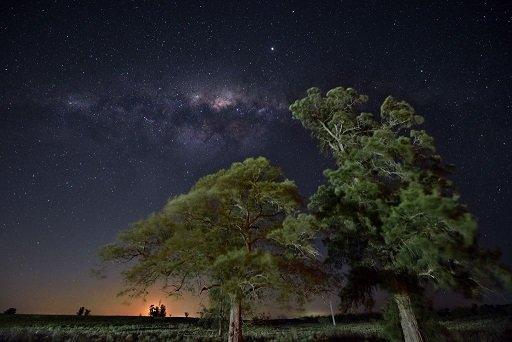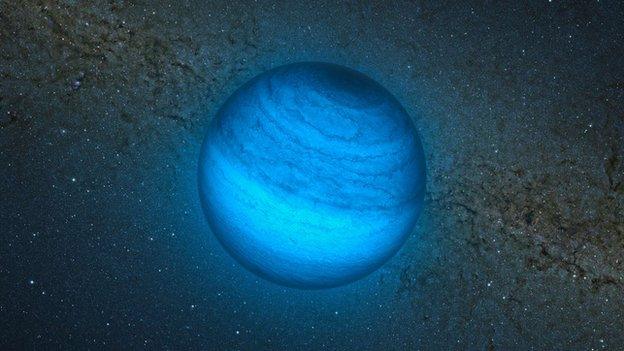Smallest ever 'rogue' planet found in the Milky Way
- Published
- comments

Astronomers have discovered a "free-floating" planet in the Milky Way that is slightly smaller than Earth.
Scientists say it is the smallest "rogue" planet ever found.
Rogue planets are ones that drift in space without a parent star that they orbit around.
While most known planets orbit a star (like the Earth orbits the Sun), the researchers believe the galaxy may be teeming with rogue planets, possibly outnumbering the number of stars in the Milky Way.

How was this rogue planet discovered?
The scientists took advantage of something called "gravitational microlensing" to spot the planet.
Gravitational microlensing is only possible when an astronomer's telescope lies in almost perfect alignment with the object being observed and the light from the nearest star.
The rogue planet revealed itself by bending the light of more distant stars.
The result was an effect that is much like a giant magnifying glass, which brightens light from a background "source" star to reveal the presence of the massive object.
Chances of observing microlensing are extremely slim because three objects - source, lens and observer - must be nearly perfectly aligned
The researchers examined data collected from microlensing surveys of the Galactic Bulge, which is the central part of the Milky Way.
They used the Warsaw Telescope at Las Campanas Observatory in Chile to gather the data.
Are there other rogue planets?
In 2011, the team found 10 rogue planets that were about the size of Jupiter and did not have parent stars within 10 astronomical units.
One astronomical unit is equivalent to the distance between the Earth and the Sun.
What else did they find?

The Milky Way's Galactic Centre and Jupiter (brightest spot at centre) are seen from the countryside in Uruguay, as the moon sets behind distant trees
The researchers said the newly detected rogue planet is the smallest one ever found and has a mass somewhere between Earth and Mars.
Radoslaw Poleski, from the Astronomical Observatory of the University of Warsaw, who was study co-author, said: "When we first spotted this event, it was clear that it must have been caused by an extremely tiny object.
"We can rule out the planet having a star within about eight astronomical units."
Astronomers believe free-floating planets may have formed in the dense gas and dust around stars and were ejected from their parent planetary systems after being pulled by the gravity of other bodies.
Studying these objects could enable astronomers to learn more about the past of planetary systems such as the solar system.
- Published23 October 2021

- Published27 October 2020

- Published14 November 2012

